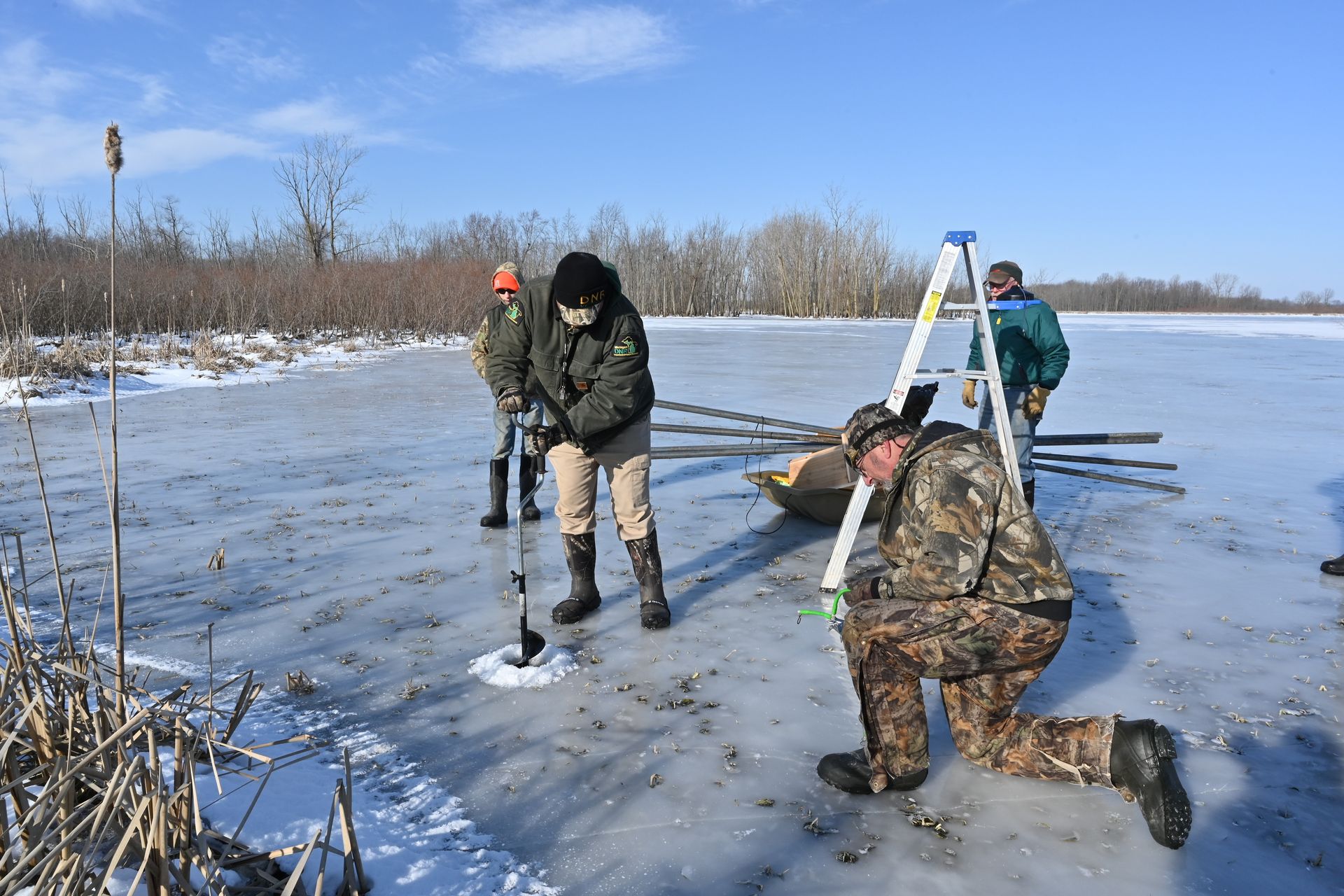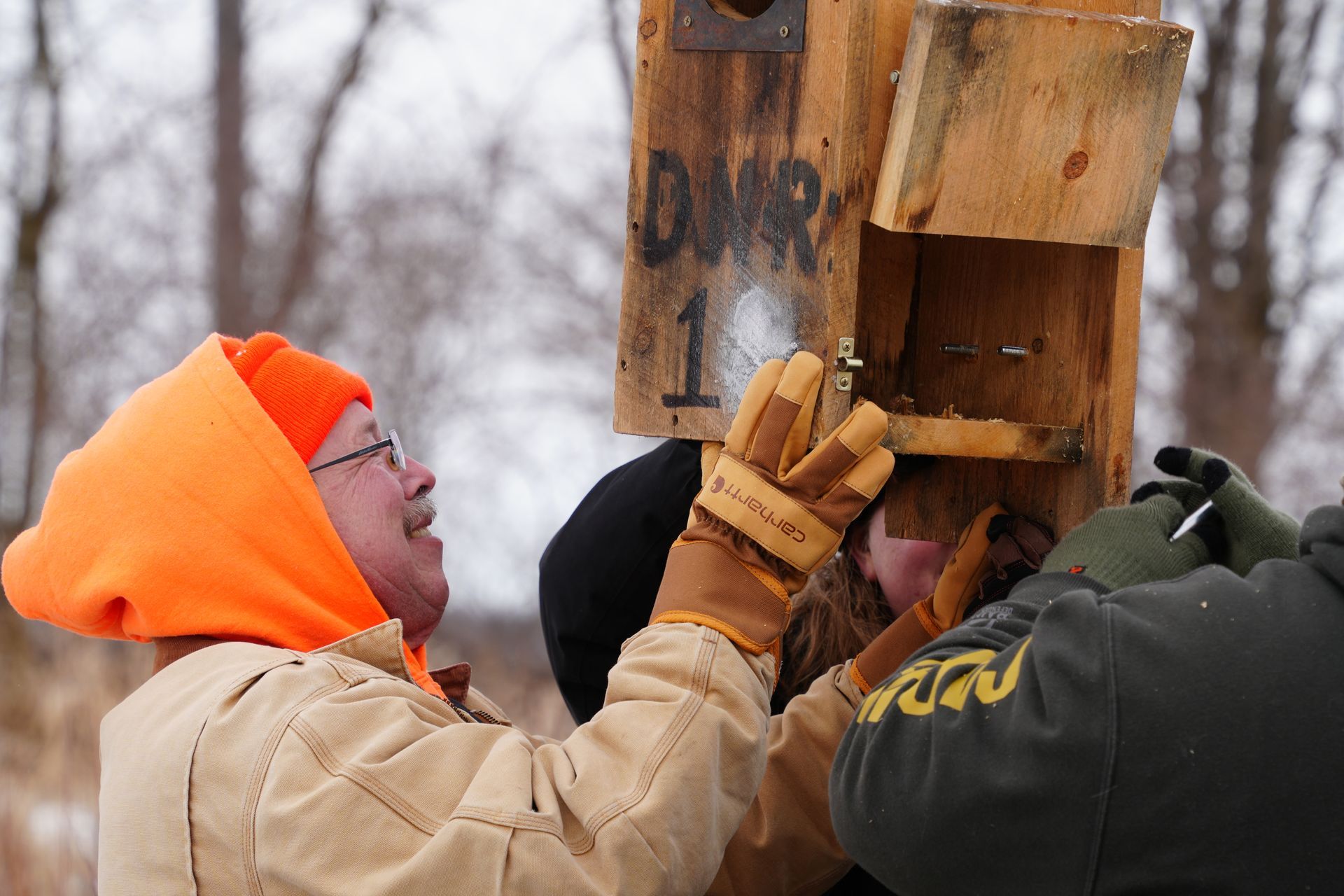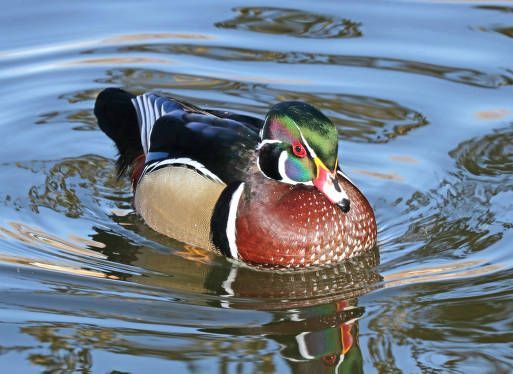OTG Volunteers Needed: Wood Duck Box Maintenance Events
This year, MUCC’s On the Ground program is partnering with the Michigan DNR to host TWO volunteer events to help benefit wood duck habitat! These events will take place at two state game areas known for their extensive waterfowl habitat: Shiawassee River SGA and Maple River SGA. Registration pages and links can be found at mucc.org/on-the-ground. Read on for more specific information about each event below.
About the Projects
Saturday, January 25, 2025 – Wood Duck Boxes at Shiawassee River State Game Area, Saginaw County – Register HERE
Join MUCC’s On the Ground program in maintaining existing wood duck boxes at Shiawassee River State Game Area in Saginaw County. Volunteers are needed from 9 AM – 12 PM. The purpose of this project is to help increase nesting success for wood ducks by cleaning out/maintaining nest boxes throughout the state game area. We will be meeting at the waterfowl check station located at the DNR Field Office (225 E Spruce St, St. Charles MI 48655).
Bring your work gloves if you have them and your enthusiasm for improving wildlife habitat! Closed-toed boots and long pants are recommended. This project will take place rain or shine unless there is severe weather, so please dress accordingly. Be prepared to work outside for a minimum of three hours. Any necessary equipment will be provided. A volunteer lunch and free appreciation gift will also be provided to all registered volunteers. We recommend bringing a reusable water bottle to reduce waste, but plastic water bottles will be provided.

Saturday, February 15, 2025 – Wood Duck Box Maintenance/Bridge Re-Decking at Maple River State Game Area, Gratiot County – Register HERE
Join us in maintaining existing wood duck boxes and re-decking a bridge at Maple River State Game Area in Gratiot County. Volunteers are needed from 9:30 AM – 12:30 PM. This project will improve habitat for wood ducks by maintaining existing nest boxes. Additionally, volunteers will also work on re-decking a cross-bridge between two waterfowl units to help improve hunter access. We will be meeting at the DNR Barns on Crapo Rd just south of Ranger Rd in Ashley, MI (43.148949, -84.523954).
Closed-toed boots and long pants are also recommended for this event as we will be outside. This project will take place rain or shine unless there is severe weather so please dress accordingly. Any necessary equipment will be provided, although a few additional items are needed.
We could use assistance with volunteers providing pry bars, cordless drills and bits, saws, a small step ladder, and jet sleds if possible. A
volunteer lunch and
free appreciation gift will also be provided to all registered volunteers. Snacks and water will be available throughout the day.

Why is this Important?
Wood ducks are one of the most stunning waterfowl in Michigan and are very popular among hunters and birders alike. They are second only to mallards in being the most common species taken during waterfowl season. Wood ducks live in wooded swamps and are cavity-nesting birds, meaning they build their nests inside of a sheltered chamber like a tree cavity. Artificial nest boxes help increase nesting habitat for wood ducks, which were almost pushed to extinction in the late 1800s due to overhunting and habitat loss. Since the first nest boxes were deployed in 1937, as many as 3 million breeding pairs exist across North America today.

Learn More
Want to participate in more events to improve wildlife habitat? Visit mucc.org/on-the-ground for more information and a list of upcoming projects. The On the Ground program works to conserve and enhance public lands by hosting volunteer workdays throughout the state. We partner with the Michigan DNR and many other conservation organizations like the National Wild Turkey Federation, U.S. Forest Service, Clinton River Watershed Council, and the Rocky Mountain Elk Foundation to help accomplish these projects. Common habitat projects include wood duck boxes, invasive species removal, river cleanups, tree plantings, and more. Bring your friends or family and come out to volunteer with us today!
Recent Posts



